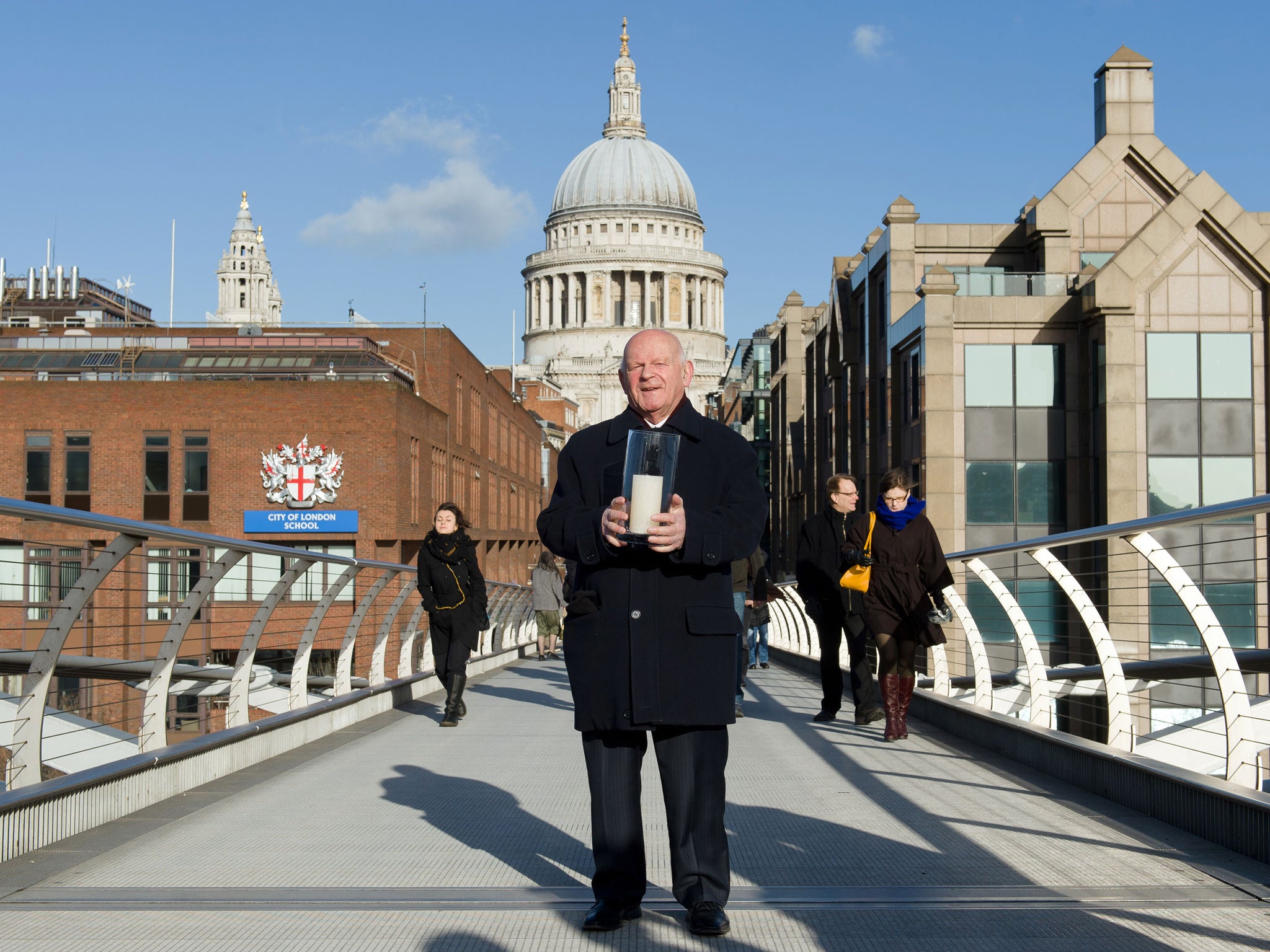Survivors descend on London to agree a British memorial to the Holocaust
Cross-party commission, set up by the Prime Minister, aims to 'educate future generations of every faith and none'

A Holocaust survivor who saw almost all his family wiped out in the death camps will today take part in an event which it is hoped will help to create a fitting national memorial.
Ben Helfgott, 84, forced to spend his childhood years in concentration camps, will join hundreds of survivors at an event staged by the Prime Minister's Holocaust Commission, which will discuss the creation of a new, permanent British commemoration.
When he created the commission in January, David Cameron warned that there was a real danger that the events of the Holocaust will become increasingly remote to younger generations.
The cross-party commission, whose members include actress Helena Bonham Carter, Chief Rabbi Ephraim Mirvis and the Arts Council England chairman Sir Peter Bazalgette, will stage a unique conference in London today, to discuss new education initiatives and memorial proposals gathered from a nationwide public appeal.
The guests include concentration camp survivors, individuals who escaped to Britain on the Kindertransport and those who were hidden from the Nazis as children.
Discussions will include how best to capture digitally the testimony of Holocaust survivors such as Mr Helfgott, and the possible creation of a new permanent museum. The new memorial will focus on the role that Britain played through the Kindertransport, and the liberation of the Bergen-Belsen camp.
Mr Helfgott, who was nine when the Second World War broke out, said: "Not only did I lose my parents, my cousins, my family. But I also lost the best years of my childhood. At a time when I was growing up and should have gone to school, I lived in those camps."
He and his family were first forced into the crowded ghetto in their home town of Piotrkow, in central Poland, where whole families were crammed into single rooms, subjected to curfews and beatings, and murdered.
In 1942, the deportations to the Treblinka gas chambers began. Mr Helfgott and his family managed to evade the deportations, but in December his mother Sara and younger sister Luisa were shot dead, along with around 550 other Jews who had been in hiding.
He was deported along with his father, eventually reaching the notorious Buchenwald concentration camp. He never saw his father again, and later discovered he was shot dead on a death march to Theresienstadt in what is now the Czech Republic.
Mr Helfgott was liberated from the Theresienstadt camp in May 1945, weighing just six stone. Despite the grim fates of most of his relatives, he says he considers himself one of the "lucky ones". After the war he moved to Britain and captained the Olympic weightlifting team in 1956.
He now lives in north London and today will be named as the latest recipient of a government-backed Points of Light volunteering award for the 50 years he has spent running the 45 Aid Society for Holocaust survivors.
Mr Helfgott said the Holocaust Commission's work was crucial: "Whole communities that were built up over hundreds of years were destroyed by the Nazis. They tried to destroy our people and this must never happen again."
Natasha Kaplinsky, the broadcaster and member of the commission who lost family members in a Belarus ghetto, will host today's event. Public submissions close at the end of May, and the commission report will be sent to the Prime Minister at the end of the year.
Mr Cameron said: "I am awestruck by the work that so many survivors do, teaching our young people about the Holocaust. We must ensure that the memory and the lessons of the Holocaust are never forgotten. Today's event is important because it gives the commission the chance to hear from survivors first-hand about how to best commemorate the Holocaust and to educate future generations of every faith and none. With their help we can ensure that the memory and the lessons of the Holocaust live on for generations to come."
Karen Pollock MBE, chief executive of the Holocaust Educational Trust, said: "The Holocaust Educational Trust is proud to be part of this unique gathering of survivors and refugees – it is crucial that their voices are heard."
In a message of support, Prince Charles said: "As the 70th anniversary of the liberation of Bergen-Belsen approaches it seems to be vitally important to preserve these memories for our children and grandchildren."
The Prince hoped the commission would "help us reflect on how we can encourage future generations to remember those who perished".
Subscribe to Independent Premium to bookmark this article
Want to bookmark your favourite articles and stories to read or reference later? Start your Independent Premium subscription today.
